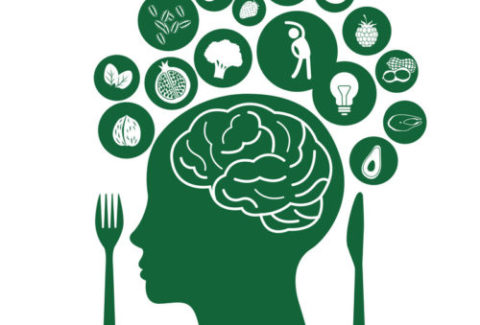Nourishing the Mind: The Transformative Power of Mindful Eating for Mental Health
In a fast-paced world where hurried meals and mindless consumption have become the norm, the concept of mindful eating[1] emerges as a beacon of holistic well-being. This article explores the profound impact of mindful eating on mental health, shedding light on its principles, benefits, and practical applications for individuals seeking a more mindful approach to nourishing both body and mind.
Understanding Mindful Eating:
Mindful eating is not just about what we eat but how we eat. Rooted in mindfulness practices, it encourages a heightened awareness of the present moment, fostering a deep connection with the sensory experience of eating.[2] By savoring each bite without judgment, individuals engage in a transformative process that extends beyond the plate to positively influence mental health.[3] But what does mindful eating really look like in practice?
The Core Principles of Mindful Eating:
Presence at the Table, Sensory Engagement, and Listening to Hunger and Fullness Cues:
What is important is to emphasize the importance of being fully present during meals, free from distractions such as screens or work-related tasks. It is also important to encourage individuals to engage one’s senses fully – noticing colors, textures, smells, and flavors – to enhance the sensory experience of eating.[4] Lastly, it is important to advocate for tuning into the body’s signals of hunger and fullness[5], fostering a more intuitive and balanced approach to eating.
Non-Judgmental Awareness and Gratitude and Mindful Choices:
This is about cultivating a non-judgmental[6] awareness of thoughts and feelings related to food, promoting a compassionate and accepting relationship with one’s eating habits. It is also important to explore the concept of gratitude for the nourishment provided by food and make mindful choices that align with overall well-being.[7]
Benefits for Mental Health:
Reducing Stress and Anxiety and Improving Emotional Regulation:
Mindful eating can serve as a powerful stress reduction tool, helping individuals manage anxiety by cultivating a calm and focused approach to meals. Further, by fostering awareness of emotional triggers related to eating, mindful eating supports improved emotional regulation and a more balanced relationship with food.[8]
Enhancing Body Image and Self-Esteem, and Preventing Emotional Eating:
Through non-judgmental awareness, individuals can develop a more positive body image[9] and cultivate self-esteem independent of societal pressures. Mindful eating equips individuals with the tools to distinguish between physical hunger and emotional cravings, reducing the likelihood of using food as a coping mechanism. What is the path to reach that destination?
Practical Tips for Incorporating Mindful Eating:
Start with Small Steps and Practice Mindful Snacking[10]:
Begin with small, manageable steps, such as dedicating a few minutes to mindful eating during one meal each day. Highlight the opportunities for mindful eating during snacks, emphasizing the importance of savoring even the simplest of bites.
Mindful Meal Planning and Mindful Eating Apps and Resources:
Explore the integration of mindfulness into meal planning, emphasizing the importance of selecting and preparing food with intention and awareness. Familiarize yourself with mindfulness apps[11] and resources designed to guide and support your mindful eating process.
Conclusion:
Mindful eating emerges not only as a practice but as a profound philosophy that transcends the act of eating itself. By fostering a connection between the mind and the nourishment it receives, individuals embark on a transformative journey toward enhanced mental health, one mindful bite at a time. Embracing the principles of mindful eating opens the door to a more balanced, intentional, and joyous relationship with food, laying the foundation for holistic well-being.
[1] Grider, Hannah S., Steve M. Douglas, and Hollie A. Raynor. “The influence of mindful eating and/or intuitive eating approaches on dietary intake: a systematic review.” Journal of the Academy of Nutrition and Dietetics 121.4 (2021): 709-727.
[2] Román, Nóra, and Róbert Urbán. “Mindful awareness or self-regulation in eating: an investigation into the underlying dimensions of mindful eating.” Mindfulness 10 (2019): 2110-2120.
[3] Mantzios, Michail. “(Re) defining mindful eating into mindful eating behaviour to advance scientific enquiry.” Nutrition and Health 27.4 (2021): 367-371.
[4] Seguias, Lana, and Katy Tapper. “A randomized controlled trial examining the effects of mindful eating and eating without distractions on food intake over a three-day period.” Nutrients 14.5 (2022): 1043.
[5] Fuentes Artiles, Ruben, et al. “Mindful eating and common diet programs lower body weight similarly: Systematic review and meta‐analysis.” Obesity reviews 20.11 (2019): 1619-1627.
[6] Carrière, Kimberly, Nellie Siemers, and Bärbel Knäuper. “A scoping review of mindful eating interventions for obesity management.” Mindfulness 13.6 (2022): 1387-1402.
[7] Babb, Michelle. Mastering mindful eating: Transform your relationship with food, plus 30 recipes to engage the senses. Sasquatch Books, 2020.
[8] Winkens, L. H. H., et al. “Mindful eating and change in depressive symptoms: Mediation by psychological eating styles.” Appetite 133 (2019): 204-211.
[9] Regan, Harvey, et al. “The Mediating Role of Body Acceptance in Explaining the Relation of Mindfulness, Self-Compassion and Mindful Eating to Body Image in Gay Men and Bisexual Men.” Mindfulness 14.3 (2023): 596-605.
[10] Dibb-Smith, Amanda, Janine Chapman, and Emily Brindal. “Breaking habits with mindful snacking? An email-based intervention targeting unwanted snacking habits in an Australian sample.” Eating behaviors 32 (2019): 37-43.
[11] Lyzwinski, Lynnette Nathalie, et al. “Mindful eating mobile health apps: review and appraisal.” JMIR mental health 6.8 (2019): e12820.









